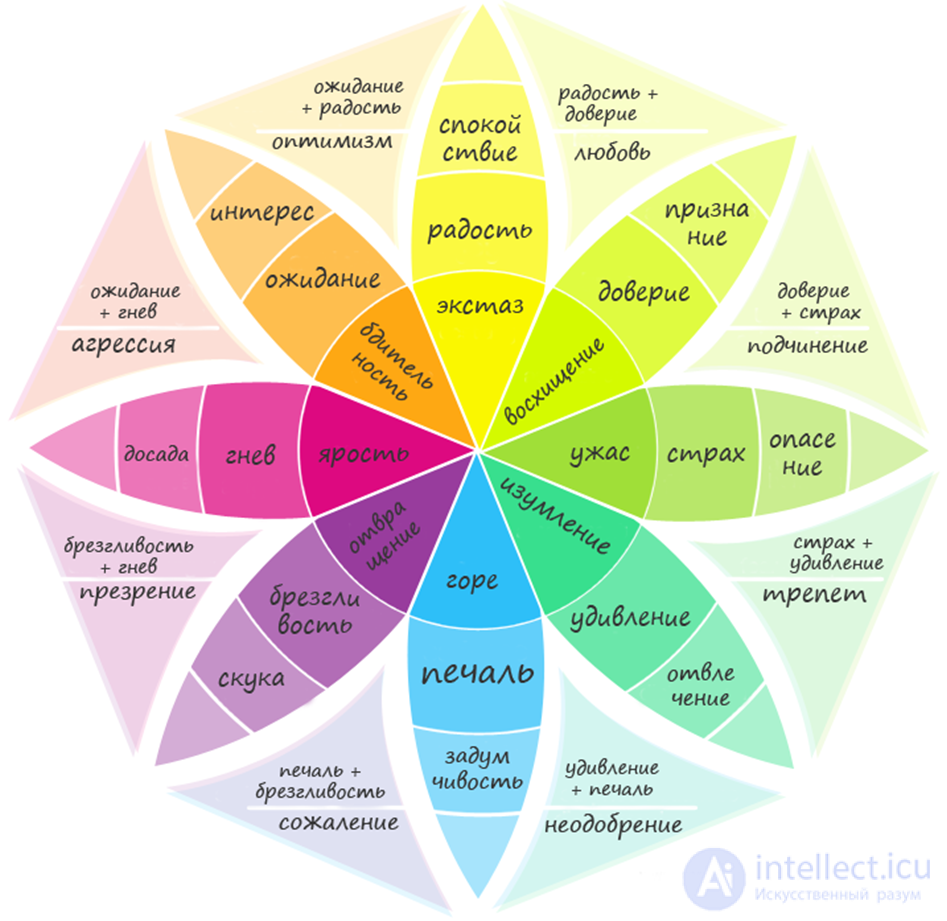Lecture
The theme of the development of emotional intelligence in a child is becoming more and more relevant.
Based on the experience of colleagues from Israel who conducted training for headquarters psychologists on the Trauma of War course, it can be said with certainty that the ability to recognize and express feelings is one of the most leading in dealing with psychotrauma resulting from hostilities. In addition, high emotional intelligence is important for the formation of a harmonious personality of the child, his ability to adapt and successfully interact with the outside world and other people.
Emotional intelligence is not only the ability to recognize emotions. This is the ability to express them correctly. Understanding of intentions, desires, motivations. Own and surrounding people. The ability to manage these emotions to solve various life tasks.
Often the “emotional” vocabulary of people is extremely poor. Limited to the standard phrases “glad - not happy”, “like - not like”. Failure to express feelings leads to bad consequences. So, children have difficulty in communication with peers and adults. The result is a negative mental state, the so-called frustration (lat. Frustratio - “deception”, “failure”, “vain expectation”, “disorder of ideas”). Therefore, children who do not know how, are ashamed or afraid to show anger, resentment, anger more often than others suffer from various psychosomatic diseases, neuralgia or show auto-aggression (self-directed aggression - auth.).
One of the most vivid examples in my practice of working with displaced children is the story of 10-year-old Gleb. In 2014, the family left Donetsk. Parents assured the boy that it is not for long. Maybe a month or two. Grandma and Grandpa stayed in Donetsk.
After a while it became clear that Gleb's dad could not find a new job in a new place. My mother's salary was sorely lacking. At the family council it was decided that my father would return to Donetsk. Gleb, according to my mother, took the news normally: “It’s necessary, it means it’s necessary.” But literally a few days later I broke my arm.
Then no one gave meaning to this occasion. It happens to everyone. But over the course of a year, Gleb broke his arm and finger a few more times, not counting endless bruises. At the same time, the child became more and more locked up and went into himself. My mother answered all the questions that everything was fine with him.
Understanding that something was wrong with the child, the mother decided to seek help from a psychologist. During our first meeting, it became clear that the child was under tremendous tension, but could not determine what it was connected with. To the question: “What do you feel now?”, The boy answered that he did not know, it was difficult for him to determine.
At meetings we talked a lot about feelings and emotions. What are they like? How to recognize this or that? What happens to the body when we feel anger or fear? How and why is it necessary to show emotions? After some time, Gleb was surprised to realize that it turns out that all this time he was angry and offended by his mother. He considered her guilty of the fact that Dad left.
My son and mom had a frank conversation. They managed to hear and understand each other. At the last lesson, Gleb said that the world seemed to have acquired colors for him! This case is a vivid illustration of how the child did not recognize what was happening to him and, without being able to show anger and resentment, unconsciously expressed feelings through auto-aggression.
How to develop the child's emotional intelligence?
1. Know yourself to recognize and express your feelings. Orient in their shades and halftones. Understand and accept the fact that there is no feeling good or bad! Any emotion born in us is important, and has a "right to life." Therefore, one should not suppress one's own feelings, but try to openly and freely manifest them.
2. Recognize the importance of the child's experiences. Do not use phrases like "do not worry." Use active listening in communication with children: “I see that you are offended, angry, distressed, upset”.
3. Learn to recognize other people's emotions . During the game, various real-life situations that occur on the street, at school, in the store, on the playground, observe the behavior, gestures, facial expressions of other people and discuss them with your child.
4. Play the whole family in board games aimed at developing the child's emotional intelligence.
5. Read and discuss fiction with your child according to their age.
6. Tell us about the diversity of emotions. The Wheel of Emotions of psychology professor Robert Plutchik will help you with this. With it, you can tell your child not only about basic emotions, but also explain how more complex feelings are built.
The main emotions for Plutchik: joy, sadness, fear, trust, expectation, surprise, anger, dissatisfaction. They are located in the second line of the circle from the center.

Emotion consists of several components:
There are simple questions that help realize your emotions:
Embark on an exciting journey into the world of emotions with your children. Incredible discoveries await you along the way. Developed emotional intelligence (EQ) is the key to mental and physical health. A child with a high EQ will grow into a harmonious personality. He will easily find contact in interaction with other people, will be successful at work and happy in the family.
Comments
To leave a comment
Psychology of emotions
Terms: Psychology of emotions